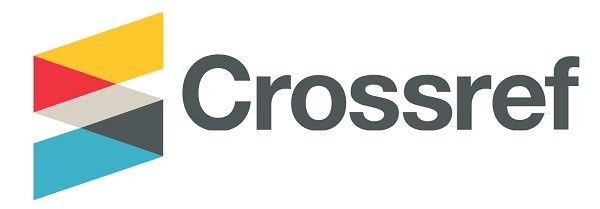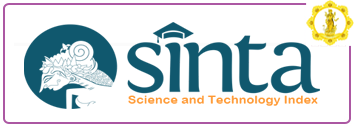Konsep Dasar Literasi Dalam Upaniṣad Sebagai Upaya Peningkatan Mutu Pendidikan
DOI:
https://doi.org/10.25078/jpm.v7i1.2101Keywords:
Upanisad, VedÄnta, Hindu LiteracyAbstract
Literacy is the soul of education In Hindu civilization. The Upanisad is an integral part of Vedic literature. It provides the basic concepts of education and literacy patterns. According to the Upanisad, education is about giving educated degrees to students and building excellent human character. Likewise, literacy is essential in Hindu Education. This article will explain the basic concepts of education and literacy patterns in the Upanisad, which are the basis for human resource development, as stated in ancient texts. This study uses Vedic hermeneutics to explain and construct the superiority of the concepts contained in the Upanishads.
Downloads
References
Apte, D. . (1387). Universities in Ancient India. Faculty of Education and Psychology Maharaja Sarajiran University of Baroda.
Bronkhorst, J. (2002). Literacy and rationality in ancient India. Asiatische Studien/Études Asiatiques, 56(4), 797–831.
Gambhirananda, S. (1937). Eight Upanishads with the commentary of Shankaracharya. Advaita Ashrama.
Indonesia, M. of E. of. (2010). Country Paper: Status and Major Challenges of Literacy in Indonesia. In Education (Issue June). United nation Educational. Scientific and Cultural Organization.
Keay, R. F. . (1918). Ancient Indian Education an Inquiry Into its Origin, Development, and Ideals. In Reviews of Literature (Vol. 3, Issue 3). Oxford University Press.
Marshall, S. J. (1918). A Guide to Taxila. Superintendent Goverment Printing.
Olivelle, P. (1998). The Early Upanisads Annotated Text and Translation. Oxford University Press.
Radhakrishnan, S. (1953). The Principal Upanishads. George Allen &Unwin LTD. https://doi.org/10.1177/019263655003417405
Sirswal, D. R. (2012). Methods of Philosophical Inquiry in Upanishads. International Journal of Multidisciplinary Educational Research, 1(2), 57–62.
Smith, F. M., Olivelle, P., & Roebuck, V. J. (2002). The Early Upanisads: Annotated Text and TranslationThe Upanisads. Journal of the American Oriental Society. https://doi.org/10.2307/3087700
Surpi A, N. K. (2019). VedÄnta & Metode Pemahaman Filsafat Hindu (1st ed.). Paramita.
Surpi A, N. K. (2020). Metode Ilmu Pengetahuan Hindu. In Paradigma Keilmuan Hindu Kemampuan para Intelektual Mengeksplorasi Ajaran Veda (1st ed., p. 87). Brilian International.
Surpi, N. K. (2017). HADAPI TANTANGAN GLOBAL, LEMBAGA PENDIDIKAN HINDU HARUS JADI GURUKULA MODERN. Jurnal Penjaminan Mutu. https://doi.org/10.25078/jpm.v3i2.197
Surpi, N. K. (2019a). Ketuhanan Vaiṣṇava dan Pemaknaannya oleh Warga Bhujangga Waisnawa di Bali. Disertasi Program Doktor Institut Hindu Dharma Negeri Denpasar.
Surpi, N. K. (2019b). The Influence Of TarkaÅ›Ästra Proficiency In The Internal And Interfaith Dialogue Nowadays. Vidyottama Sanatana: International Journal of Hindu Science and Religious Studies. https://doi.org/10.25078/ijhsrs.v3i2.1110
Surpi, N. K., Avalokitesvari, N. N. N., Ardana, I. K., Sukanta, I. K., & Subrata, I. D. M. (2020). The divinity philosophy of vaiṢṆava and its interpretation by the warga bhujangga waisnawa in bali. International Journal of Advanced Science and Technology.
Wiratno, A. R., Hastuti, K., Wilani, N. M. A., Widiasavitri, P. N., Marheni, A., Rustika, I. M., Suparni, Nugroho, A., Pramono, B. A., Munawar, Kebudayaan, K. P. dan, Erri Wahyu Puspitarini, Dian Wahyu Putra, A. P. N., Elhai, J. D., Levine, J. C., Dvorak, R. D., Hall, B. J., Ekayani, N. L. P., Collins, L., Bangun, S. Y., … Id, A. (2019). Indeks Aktivitas Literasi Membaca 34. In Mobile Devices: Tools and Technologies (Issue 2). Pusat Penelitian Kebijakan Pendidikan Dan Kebudayaan Badan Penelitian Dan Pengembangan Kementerian Pendidikan Dan Kebudayaan. https://books.google.co.id/books?hl=id&lr=&id=xss9DwAAQBAJ&oi=fnd&pg=PA1&dq=pengertian+unity&ots=8jiXmjqV6g&sig=F762ZZVgGQ1rzOdDvQmGTPskMcE&redir_esc=y#v=onepage&q&f=false%0Ahttp://repositori.kemdikbud.go.id/13033/1/Puslitjakdikbud_Indeks Aktivitas Litera









